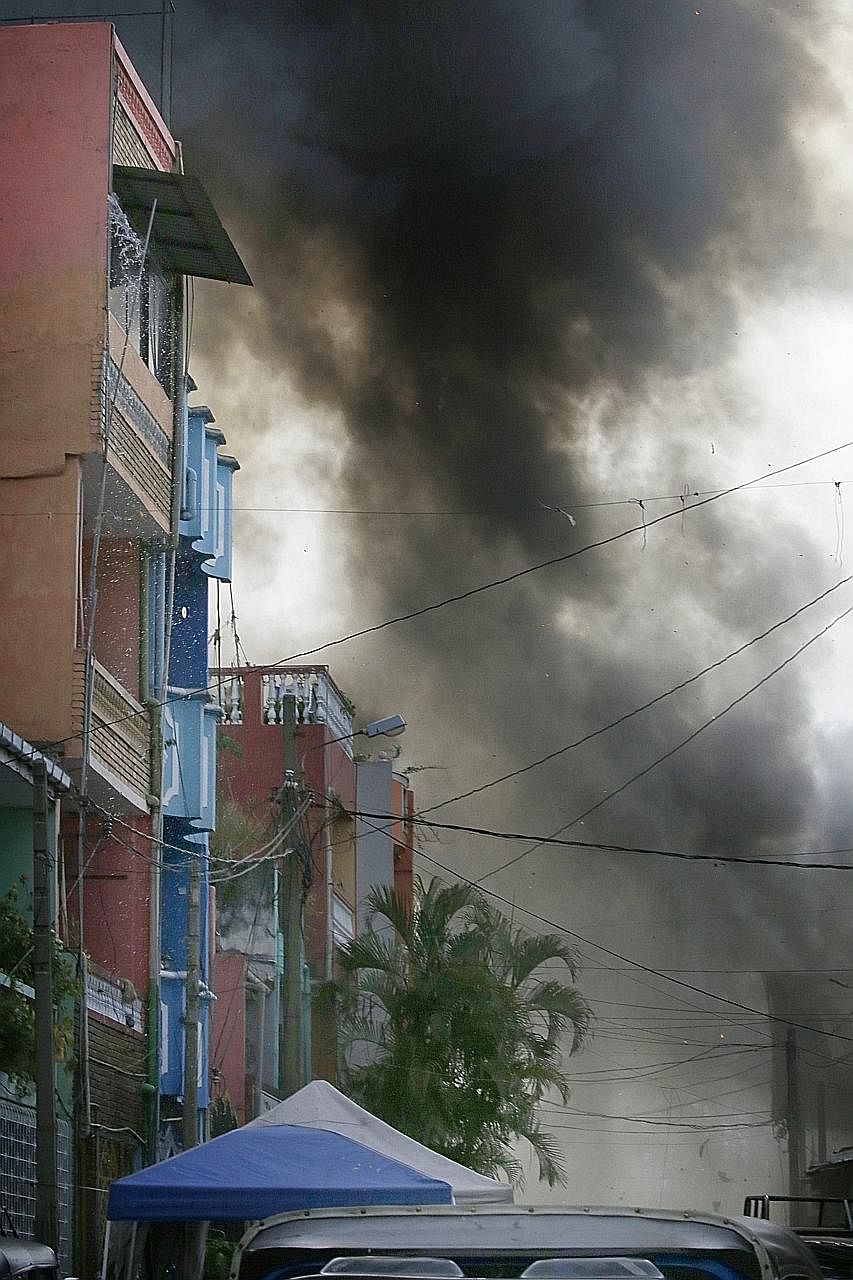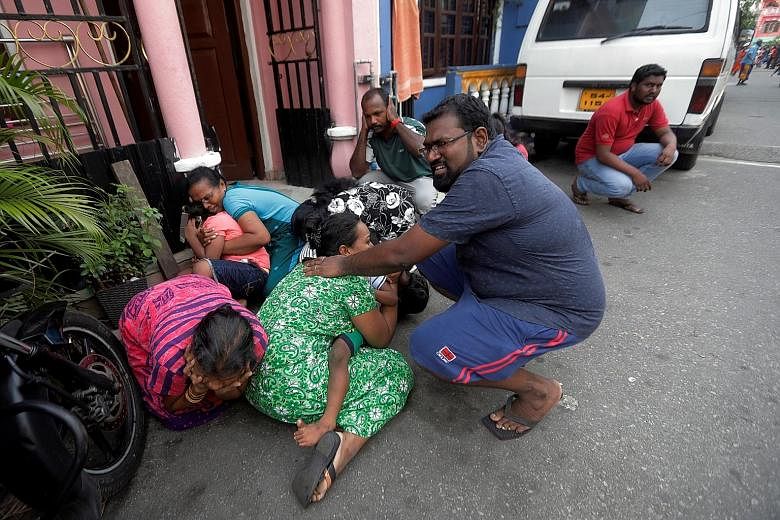Sri Lanka, in mourning after Sunday's suicide attacks, remained on tenterhooks yesterday as reports of more blasts unnerved residents and tourists in Colombo and a dusk-to-dawn curfew was imposed for the second night.
Casualties from the bombings on churches and luxury hotels rose to nearly 300 dead, including at least 37 foreigners, and several hundred injured.
What were initially mistaken for fresh attacks turned out to be "controlled explosions" by bomb disposal units. Local reports suggested a series of such explosions throughout the day. These included an improvised pipe bomb found close to Colombo's main airport yesterday and which was defused successfully by air force personnel.
While no group has claimed responsibility for the attacks, government spokesman Rajitha Senaratne said that suspicions pointed to the involvement of local Islamic extremist group National Thowheeth Jama'ath (NTJ).
Investigations are under way to determine whether the group had "international support", he added.
The government has confirmed that the attacks on three churches - in Negombo, Batticaloa and Colombo - as well as high-end hotels in the capital were carried out by a team of suicide bombers.
Countries including Singapore have issued travel advisories asking their citizens to defer non-essential travel to Sri Lanka or warning that terrorist groups could be plotting more attacks.
With foreign tourists scrambling to catch flights out of Sri Lanka, the island's tourism industry is bracing itself for a negative fallout from the deadly attacks.
Traffic was reported to be thin in an otherwise bustling Colombo after the first islandwide curfew was lifted during the day.
Social media and messaging services including Facebook and WhatsApp continued to be blocked.
Sri Lanka has also enforced a state of emergency from midnight local time yesterday, enhancing the counter-terrorism powers of its forces. The decision was made during a meeting of the National Security Council chaired by President Maithripala Sirisena.

Sri Lankan police have arrested 24 people so far in connection with the devastating suicide bombings, the worst in the country since the end of the civil war in May 2009.
The island's Daily Mirror newspaper reported that one of the suicide bombers at Shangri-La Hotel has been identified as factory owner Insan Seelavan. Nine of his employees have been arrested.
Police also said the driver of a van that had carried explosives for the attacks at the three hotels has been arrested.
In an address late on Sunday, Prime Minister Ranil Wickremesinghe said that his country needs assistance from foreign security officials to "check foreign links of these groups".
He acknowledged that the authorities had received warnings but had not paid enough attention to them.
An Agence France-Presse report said Sri Lankan police chief Pujith Jayasundara had issued an intelligence alert on April 11, warning that the NTJ was planning suicide attacks targeting prominent churches as well as the Indian High Commission in Colombo.
The attacks have heightened fears of social as well as political instability in the Buddhist-dominated country. Hindus form the largest minority at around 12 per cent, followed by Muslims at less than 10 per cent. About 6 per cent of the population is Catholic.
Indications that intelligence reports suggesting impending attacks had been ignored are likely to worsen an ongoing feud between Mr Wickremesinghe and Mr Sirisena, who belong to different political parties.
Mr Sirisena has set up a three-member committee to probe the attacks and said in a statement that the government would seek foreign help to track overseas links to the attackers.
He also declared today to be a day of national mourning.

